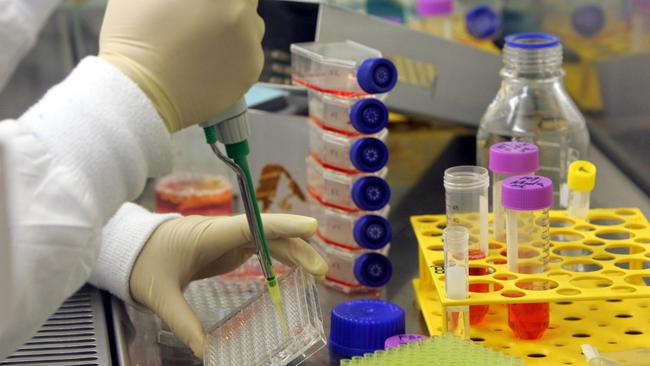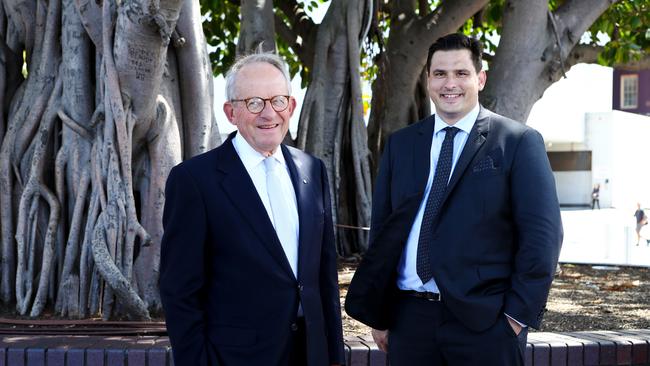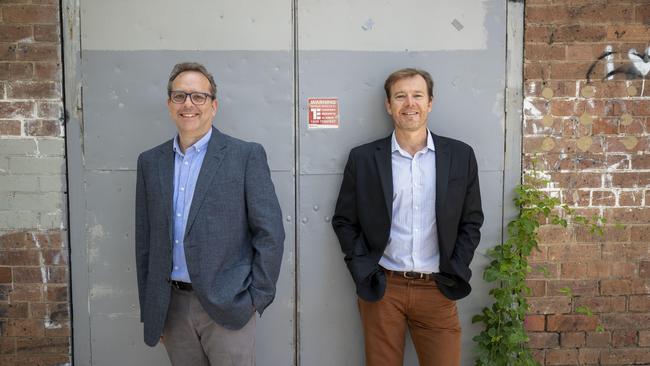Australian biotechs seek out big partners at US health conference
The biggest delegation of Australian biotech representatives since the Covid-19 pandemic attended JP Morgan’s health conference in San Francisco – setting up for a year of deal making.

Local biotechs are back on the world stage, with the biggest Australian delegation since the Covid-19 pandemic descending on JP Morgan’s major health conference in San Francisco – setting up for a year of deal making.
ASX-listed companies, including ResMed, radiopharmaceuticals outfit Telix and skin graft company PolyNovo, made presentations to the bank’s conference, widely considered a magnet for deals and partnerships.
They joined the world’s biggest pharmaceutical companies: Pfizer, Novartis, Johnson & Johnson and others.
As lucrative patents expire, the top end of town has an estimated $1 trillion cash pile it can spend on acquisitions and partnerships as alternative revenue streams.
Already, several deals individually worth more than $US1bn ($1.43bn) have been signed.
AstraZeneca said it would buy drug developer CinCor Pharma for as much as $US1.8bn, while Chiesi Farmaceutici is acquiring Amryt Pharma for $US1.5bn to expand its rare disease portfolio. Meanwhile Paris-based Ipsen is set to acquire liver disease specialist Albireo, paying up to $US1.2bn.
Australian biotechs hope to get in on the action.
ASX-listed Recce Pharmaceuticals chief executive James Graham described the JP Morgan conference as speed dating.
“The meetings happen in hotel rooms. They remove the bed and you basically have a big table, and you are essentially speed dating – only your date is with a big pharma or a billionaire,” Mr Graham said, adding that he had 16 such “dates on Wednesday. “Not only are you excited to see them, they’re very excited to see you.”
The meetings came a day after Recce received an Australian patent for two of its “anti-infectives” that can be used for treating a virus with a lipid envelope, such as Covid-19, influenza, HIV, hepatitis, Ross River and herpes.
“We positively have had, in this case, unsolicited approaches from big pharma. They recognise the long-Covid challenges, and comorbidities in the infectious disease landscape is a big opportunity to extend their portfolio of products; many of them are coming off patent,” Mr Graham said.
“But of course, the opportunity is to take a position, typically in US dollars in a lower-currency environment such as Australia.”

chief executive Christian Behrenbruch said big pharma wanted to fill a “massive earnings hole” by acquiring commercial-stage companies. While attending the conference, Dr Behrenbruch released unaudited accounts, which showed an almost 40 per cent uplift in quarterly sales of Telix’s prostate cancer imaging agent, Illuccix, as it builds momentum in the US.
The company’s shares lost 7.2 per cent on the day, but Dr Behrenbruch said they had risen 29 per cent since October, leading some investors to crystallise gains.
“We’re in the upper range of consensus for 2022 and just on last quarter we have established our ability to deliver on consensus for 2023,” he said.
“We’ve got a really healthy pipeline – a lot of intellectual property that we’re in the process of converting into really durable revenue streams.”
Dr Behrenbruch said company had three objectives at the conference. “We’re reinvigorating our relationship with US banking because we have a large number of US shareholders now; looking at targets that we may be interested in to grow our business; and engaging with firms that may see us as a way to augment their revenue streams as well,” he said.
But not everyone was looking for new investors or to raise more capital. That was not top of mind for PolyNovo chair David Williams, also in San Francisco.
“The grass is not greener over here in that the multiples are no higher than in Australia and in many cases less,” Mr Williams said.
“Covid has exposed many household – names not just in terms of their balance sheets but more worryingly their business models. There is a lot of rebuilding to be done in the sector in the next 18 months.
“I am not here looking for capital or investors. I am looking at our competitors and at companies in tangential areas of business. Polynovo can hold its head high with our performance.”

Talu Ventures life sciences managing director Andy Jane said although bigger pharmaceutical companies had about $1 trillion to spend on acquisition, activity was yet to happen in earnest.
“M&A is still relatively cool and down compared to the giddy years of 2000 and 2021,” Mr Jane said.
“Licensing and collaboration at preclinical levels is still high. I saw a figure that of the top-10 drugs by value, 75-80 per cent came from external … collaboration with smaller companies.
“We are seeing some reverse mergers happening but mostly companies are reducing their workforces looking for alternative uses of cash.”
He said venture capital still had funding to deploy on the sector, while equity markets were closed.
“There was about $US40bn worth of new US biotech VC fund money raised in the last 18 months so there is plenty of dry powder for new companies, and follow-on funding for those companies which VCs have a conviction about,” he said.
“Public equity markets are still essentially closed although there were occasional green shoots at the back end of last year. People are taking bets on whether 2023 is going to be a bull or bear year. I would say the consensus is 60/40 a bear year.”
JP Morgan analyst David Low said feedback from large companies “was encouraging” and activity was largely back to normal.
“The number of procedures – whether for cardiology devices or sleep apnoea treatments – is generally back to pre-pandemic levels or better … the one exception being China,” Mr Low said.
“It is still a challenge to find enough people but the level of turnover has reportedly eased and wage inflation has slowed.”




To join the conversation, please log in. Don't have an account? Register
Join the conversation, you are commenting as Logout